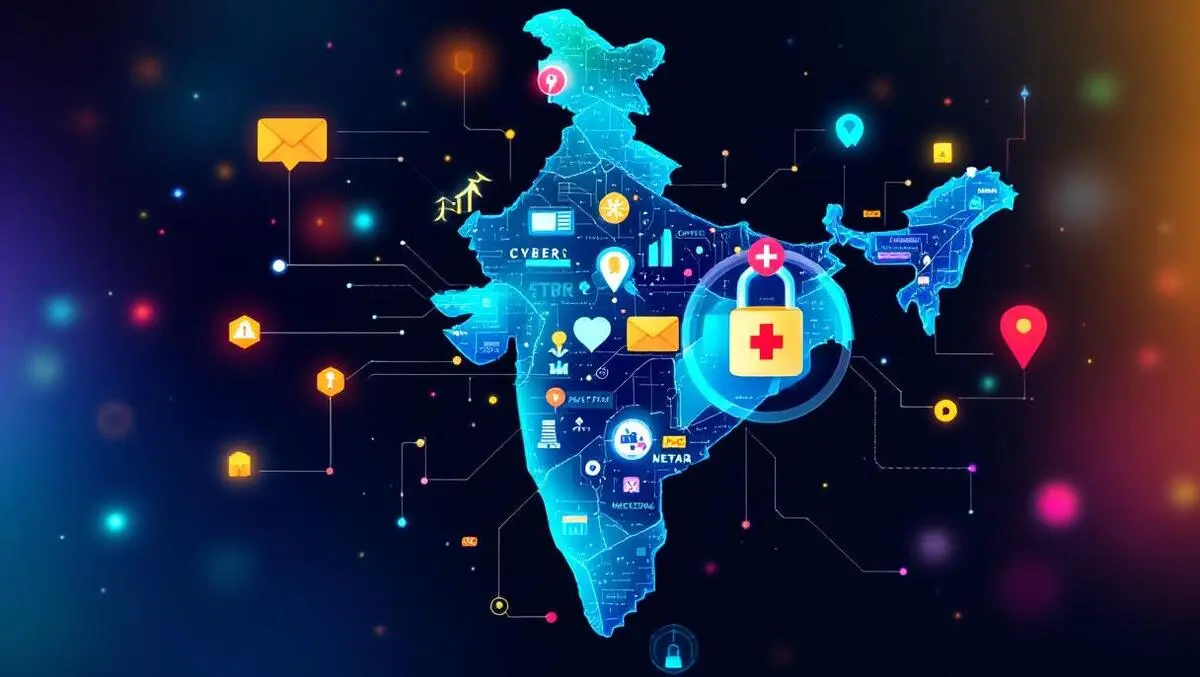
India faces rising cyber threats amid digital transformation
India's rapid digital transformation has brought with it a heightened vulnerability to cyber threats, according to Shibu Paul, Vice President – International Sales at Array Networks. While the nation stands proud as a leader in technological advancement, its increasingly interconnected economy has created fertile ground for cyber adversaries seeking both disruption and advantage.
"India's rapid digital growth has positioned it at the forefront of global digital transformation, with advancements in technology infrastructure, digital payments, and internet connectivity," Paul said. "However, this growth has also made India more vulnerable to cyber threats, both internal and external."
Paul noted that while India is enhancing its cyber capabilities, it remains focused on defence rather than the offensive operations regularly seen from the United States or European powers. "India plays an active role in global cybersecurity discussions, contributing to international policy and norms," he explained, citing initiatives such as the National Cyber Security Policy and the Indian Cyber Crime Coordination Centre (I4C).
He added that although India "is aware of the need to protect its digital sovereignty", it is not yet matching the scale of offensive cyber tactics deployed by leading cyber powers. "As India's cybersecurity posture evolves, its priority is to ensure the security of its digital ecosystem, positioning it as a growing player in global cybersecurity," said Paul.
The threat landscape is growing, with Indian businesses particularly at risk from nation-state-backed cyber groups in the coming years. Paul pointed to India's increasing geopolitical significance as a prime motivator for such activity. "Nation-state actors often target countries with rapidly growing economies, strategic value, or political relevance, and India fits this profile," he said. The sophistication of attacks is rising, and cyber is now a key tool in the global contest for influence and information.
According to Paul, several industries are especially vulnerable. "Sectors like energy, transportation, and utilities are prime targets for nation-state-backed cyber-attacks, as disrupting critical infrastructure can have far-reaching consequences," he said. The technology and telecommunications industries face heightened risk of espionage and loss of intellectual property, particularly as India emerges as a technology innovation hub.
Other prime targets include the financial sector, with its crucial economic importance, and defence and aerospace, where attacks could have grave national security implications. Healthcare is increasingly at risk as digital adoption accelerates. "Nation-state actors could exploit vulnerabilities in this sector, especially as the global focus on healthcare data security intensifies," Paul said.
While industry-specific attacks make headlines, Paul also cautioned that all businesses, large and small, are vulnerable, particularly given the rising trend in ransomware and phishing attacks. "Indian businesses, especially startups and small enterprises, have witnessed an alarming rise in ransomware and phishing attacks over the past few years," he added, referencing the 2022 attacks on healthcare and financial firms that led to severe data breaches.
Reflecting on major incidents, Paul highlighted the 2020 cyberattack on India's power grid, believed to be state-sponsored, as a turning point that exposed the nation's vulnerability to disruption of essential services. The 2021 breaches of government websites, which exposed sensitive data, further underscored the strategic intent to both compromise key operations and steal valuable information.
For small businesses and startups wanting to bolster their defences, Paul recommends a multi-layered approach. "Small businesses should ensure strong, unique passwords and employ multi-factor authentication (MFA) for all critical accounts," he said. Regular software updates, employee education about phishing, and comprehensive disaster recovery planning should also be prioritised. "Human error is a primary factor in successful cyberattacks. Educating employees on identifying phishing attempts, safe browsing habits, and secure handling of sensitive information is essential."
He urged that affordable cybersecurity solutions like firewalls and intrusion detection systems are now vital investments, noting that information-sharing within industry circles can also help businesses stay vigilant. "Engaging with industry groups and local cybersecurity communities can help startups stay informed about emerging threats and best practices," Paul said.
Looking ahead, Paul identified several transformative trends expected to impact businesses by 2025. "AI and automation will revolutionise every industry," he stated, enabling significant gains in productivity, customer engagement, and advanced analytics. The march towards sustainability—spurred by consumer and regulatory demands—as well as the normalisation of remote and hybrid work, are other shifts reshaping business strategies.
The rise of the metaverse also looms, with augmented and virtual reality blending physical and digital experiences for customers and employees alike. "By 2025, the metaverse could become a significant business platform, enabling companies to host virtual meetings, launch immersive marketing campaigns, sell virtual goods, and even build entirely virtual storefronts," Paul predicted.
Cybersecurity and data privacy will only grow in importance, with sophisticated threats creating both risks and opportunities for businesses agile enough to keep up. Paul believes integrating health and wellness into offerings, leveraging blockchain technologies, and converging digital and physical retail experiences will all shape the future business landscape.
"As we move toward 2025, businesses must embrace technological advancements, evolving consumer demands, and changing global dynamics to stay relevant in an increasingly complex environment," Paul concluded. "The key to thriving in the coming years will be agility, innovation, and an unwavering focus on delivering value to consumers in new and exciting ways."


